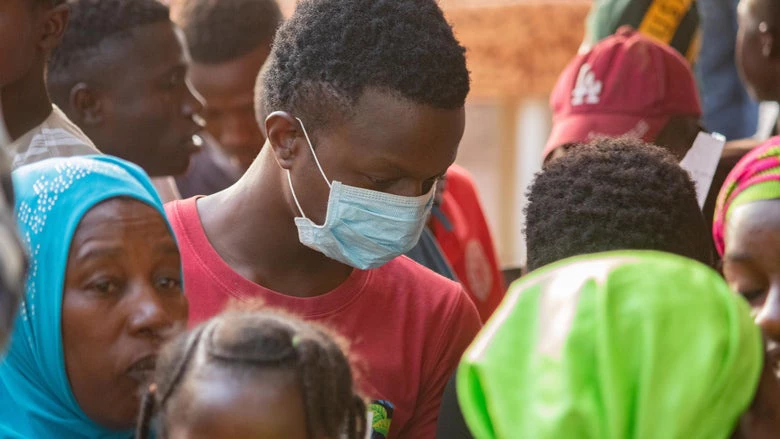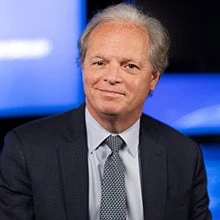A few weeks ago, the international community agreed to a record $93 billion financing package for the world’s poorest countries. This support will be delivered through the World Bank’s International Development Association (IDA) over the next three years, starting in July.
This is IDA’s twentieth replenishment and by far the largest in its 61-year history. So, what makes IDA the fund of choice in international development, even in these tough budgetary times? I think four key features stand out.
First, IDA has a unique financing model. With impressive solidarity at a time of immense global needs, a broad coalition of high-income and middle-income countries from across the globe pledged $23.5 billion. IDA uses a unique leveraging model that combines these donor pledges with funds it raises in the capital markets, along with repayments, and the World Bank Group’s own resources. This means that each $1 pledged by donors will generate nearly $4 in IDA finance for the poorest countries.
Second, IDA provides comprehensive support at scale. Over time, IDA has consistently been a stellar custodian of taxpayer money. It delivers flexible concessional resources for the 74 poorest countries, with a focus on reaching as many people as possible and delivering impact for the poor and vulnerable. For example, IDA’s programs in the next three years are expected to provide nearly 400 million more people with essential health, nutrition, and population services – while an additional 300 million will get access to social safety net programs.
As part of each replenishment, borrower and donor countries take a fresh look at where IDA is making a difference and discuss how it can do more. For IDA20, this includes ambitious policy commitments in areas ranging from health and education to job creation, digital infrastructure, gender equality, and support for people with disabilities. IDA will also intensify support in places that face fragility and conflict, and those that host refugees. Working across sectors, IDA will continue to help countries strengthen their government institutions, services, and management of public debt.
Third, IDA support has been crucial throughout the COVID-19 crisis. IDA helps the world’s poorest countries cope with crises, soften the impacts on the poor and vulnerable, and build resilience. This kind of support is indispensable now, both as countries address the development setbacks brought on by COVID-19 and as they lay the groundwork for a greener, more inclusive, and more resilient recovery.
Early on, we recognized that the pandemic would cause hardship on an unprecedented scale – today, 100 million more people have fallen into extreme poverty around the world. We also understood quickly that front-loading IDA’s resources would make the biggest difference for countries in need. While IDA usually delivers in three-year cycles, the crisis called for surge support with greater speed and scale. We are grateful that donor and borrower countries agreed to concentrate resources in the first two years of the IDA19 cycle and to advance the IDA20 negotiations by one year. Since the crisis began, IDA has provided over $65 billion in concessional credits and grants for broad-based COVID-19 response. Out of this $65 billion, about half is specific to COVID-19 response.
"IDA’s programs in the next three years are expected to provide nearly 400 million more people with essential health, nutrition, and population services – while an additional 300 million will get access to social safety net programs."
IDA is also helping the poorest countries acquire and distribute COVID-19 vaccines , having delivered a crucial $3.9 billion in vaccine finance to 50 of the poorest countries. However, in most places vaccinations can succeed only if we help build more capacity for health systems. Hence IDA is also helping countries access essential equipment for hospitals and laboratories, establish cold chains and key logistics, train health professionals, and inform local communities to build understanding and combat vaccine hesitancy.
Investments like these have benefits far beyond the current pandemic. Over the longer term, they will help countries combat other diseases, build preparedness for future health emergencies, and deliver routine health services to many more of the poor and vulnerable. Which leads me to my fourth point.
Four, even during a crisis, IDA supports long-term goals. IDA’s strength derives from its long-term development vision and steady results to help countries achieve their goals. While the most immediate need during COVID-19 has been saving lives, IDA support has also helped expand social protection, preserve jobs and businesses, and jump-start planning for a return to sustainable growth.
The $93 billion support package will mean that as countries recover from COVID, we will help them regain lost ground in education, health, and other sectors that are critical to long-term progress. And a huge priority for IDA20 is stepping up climate action in the poorest countries, which contribute very little to emissions yet are facing many of the worst climate impacts.
The successful IDA replenishment is an important reminder that the international community can unite in solidarity with developing countries. Drawing on this solidarity, IDA can continue to provide crucial help to its clients, both as they weather the crisis and as they get development back on track . IDA enables a concerted global effort to support the countries that are most in need. Together, we can help them emerge from the pandemic, grow in more inclusive and sustainable ways, and improve the lives of their poorest and most vulnerable people.
Related
Story: Stepping Up to Ensure the Poorest Are Not Left Behind
International Development Association (IDA)



Join the Conversation